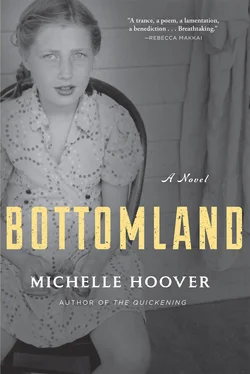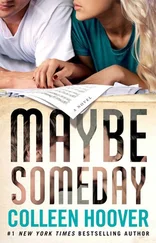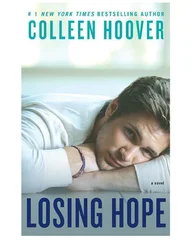After that, I knew I was going. And Myrle, she was going too.
In the daylight now, we walked in the ditches with the scrub. I held the tail of Myrle’s coat, she had me by the wrist. We crouched in an overturned wagon to eat the last of our bread, drank from a farmer’s buckets. The water tasted like feed. Our boots fit like boxes by then, our barn coats thin. With Myrle slow as she was, by the time we made Clarksville, the sun had risen on us twice. “Where are you two going?” the man at the ticket counter asked. The stitching on his jacket spelled shell rock railroad, his ears red under his cap. He tapped his knuckles at us. But we had a pocketful of fives and tens from that tin in Elliot’s barn. Myrle had taken it herself. She’d surprised me doing that, and the boy could never say he missed it. Not after what he’d done. “All right then,” the man said. He scratched at the bald skin under his cap. “Two tickets to Chicago. You girls be careful out and about.”
We slept on the benches in the station. We slept in the train. It clumped over the tracks, slow through the boxcar end of town before speeding up. The smell of smoke from the engine, the flicker of kerosene lamps. Outside it was dark and fast and we held onto our seats, the train as loud as a tractor three times over, tearing at the rails as it went. A boy gripped the headrests as he walked the car. A woman put her stitching down, her hand on her stomach. I closed my eyes. Next I knew, the sun was coming again. It had rained the night through. The fields and farmhouses shone. My breath on the window was white. “Myrle,” I whispered, but she slumped asleep with her arms over her face. I wrote our initials on that window with my finger. MH , I wrote, and EH in larger letters. Across from us, the lady glared, and I wiped the letters off quick.
We changed at Waterloo for the Cedar Rapids, rode through McAuburne, Shellsburg, and Bridgeton. We took the Chicago Northwestern across the state line. The Mississippi was a long stretch of water, and we were in a place called Illinois then. Later, roads broke across the fields like splinters, lines of wagons and motorcars. At the railway stations, men in suits crowded the planks, raising their hands. Soon there were sidewalks full of people with long coats and shopping bags, buildings taller than a person could count, and the pitch of horns in the streets. When at last we pulled into Chicago, it was larger than looking up had ever been. The porter tipped his hat at Myrle and we knew we’d made it.
The night before we left, we stayed up near to morning in the kitchen to make sure of our plan. Myrle was set to get the key, and the rope was under my bed, that tin already empty and hidden back where she’d found it. When at last we climbed the stairs to our room, the sun was just rising. It was low and grand, and we watched from our window. The birds were quiet, though I felt they were restless. The fields looked black under that run of light, as if something new waited for us. There were all sorts of sights we didn’t know beyond those fields, all sorts of wonders. Myrle rested her head on my shoulder, already dreaming, and I helped her to bed. We’d have only so many hours before breakfast, only so many before Nan knocked on our door to wake us with the day of chores, before we could make our escape after night fell. When I closed my eyes, I could see the road and the brightness up ahead, the long trail that whispered to us, and I felt I was nothing and everything at once.
Later when I came back and Myrle didn’t, when I lost her for good, I would think about what it meant to leave and never return. At the window, maybe that was the last time she trusted me so much.
Our train pulled to a stop late morning. I had the address of Hurley’s Electric in pencil on a card, asked at the station office for a map. “A nickel for that,” the woman said without looking.
We sat in the station and ate buns, a cup of coffee Myrle spat out. “This is where we’re going,” I showed her. “The factories, they’re all along the river and the tracks. There’s work there.” Myrle traced the lines on the map with her finger, mouthing the names of streets. Outside, the city through the windows was a gray lump of clouds. A sweep of strangers’ coats hurried through the doors, a woman carrying her dog in a cage. The man at the shop who’d sold us the buns was reading his paper, a group of boys in the corner filling their cheeks from a tin can. The trains whined to a stop, took up passengers, and headed off. My eyes ached.
“You’ve got your bag now,” I told Myrle. “I can’t carry it for you.”
She stopped her tracing.
“Ready?”
Myrle folded the map neat and put it in her bag.
We walked for hours after that. The streets were cramped and thick with dirt, the motorcars fast as axes. No one paid us any mind. At every corner we stopped and looked down the spill of streets, as if looking could tell us something. When finally we reached the address on my card, those streets emptied out, but the warehouses hummed, the walls as long as blocks. There didn’t seem any numbers on those walls, not even a door for knocking. Only vents and docks, the windows starting two floors up. When we stopped at what looked an office, the door was locked. On the front, a square of old paint, where a sign for Hurley’s Electric might have been.
“What is it?” Myrle asked.
“Nothing.” I hid that card in my hand.
Myrle shifted her bag.
“It must be down a ways,” I said. “Come on.”
We scuffed our feet. Hurley’s wasn’t at Clinton and Monroe, and that map of ours didn’t do us much better. I checked the same number on different streets. Checked ways those numbers might rearrange themselves into something different. By midafternoon, the lake was in front of us and we crouched on the stones. We couldn’t see the other side, not even a speck of land larger than a finger. The waves were slow. Far off, tugboats and ships moved by inches. If anything, the water looked like rutted dirt, as close to home as home ever was, and I wondered if Father was missing us.
“Esther,” Myrle said. She sat with her bag tugging at her neck, her mouth to her knees.
“We must have passed the street.”
“We’re nowhere.”
“It’s a whole city worth of places.”
“It’s not Hurley’s.”
“I must’ve got the address wrong, but that doesn’t mean it isn’t somewhere.”
She closed her eyes, rubbing at the palm of her hand like it itched. I tapped at her foot. “Hungry?”
She nodded. Before I could take up my bag again, she’d thrown hers over her shoulder and headed back the way we’d come.
The bakery had four short tables and a mess of chairs. A bell rang on the door. We sat with our cups of tea, and out the window, a man stumbled down the street. “What now?” Myrle asked.
I took out the magazine. It was more than crumpled. The woman with her invisible cup of tea, she didn’t seem so pretty. Myrle watched me with a dark look and eyed the customers, all of them men. Behind the counter, the baker reached into his oven, pulled out a pan. The men at the tables eyed my sister back. Foxes, I thought.
“Do you know.,” Myrle asked them, her voice cracking. “. Hurley’s Electric?”
I shushed her.
The man closest sat up in his chair. “Hurley’s?”
“Hey now.” The baker came out, flour on his knuckles, his apron. “What you bothering them for, John?”
John held up his hands.
Myrle reached across the table for the magazine. She gave it to the baker, holding tight to the corner like he might not give it back.
“Oh, that Hurley’s,” he said. “They’ve moved most of the business to New York. Nothing but an office on Jefferson now.”
Читать дальше












